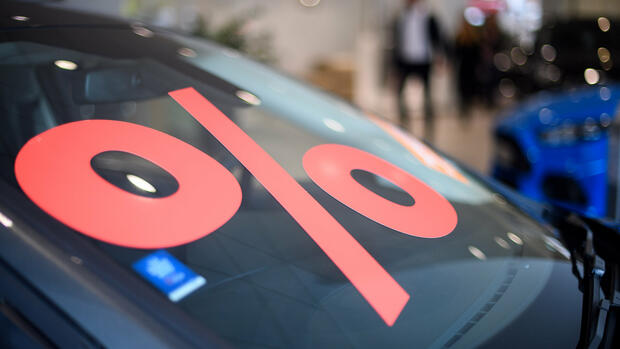Dusseldorf “Special offer” is emblazoned large on the windscreens of several new cars at a VW dealership on Düsseldorf’s auto mile. A closer look reveals that the discounted models are all petrol or diesel vehicles. And there’s a reason for that. Because the VW car dealerships cannot easily lower or raise prices for electric cars. Responsible for this is the so-called agency model, which Volkswagen agreed with the dealers when introducing its ID series.
The concept reverses the logic of car sales – and works like this: if the dealer usually buys the cars he wants to sell on his own account and sells them on, the manufacturer takes the risk in the agency model. It is he who sets the price. The retailer only has an intermediary role (“agent”), for which he collects a commission.
The agency model in the Volkswagen Group currently applies to e-cars from the VW and Cupra brands. From January, Audi is also to switch to the agency with the sale of its electric cars in Germany.
Other manufacturers such as Mercedes also rely on the sales model. The motivation behind it: save sales costs – and learn more about the customer in digital sales.
>> Read also: With the ID.2, VW’s fight against Tesla for affordable electromobility begins
With the currently sluggish demand for electric cars, dealers at VW are once again criticizing the agency model: “The manufacturer cannot sell directly, that becomes clear in times like these,” says a VW sales representative. The cars are “simply too expensive”. Without discounts, the concern in the retail trade is that the e-models from Volkswagen could become slow sellers in Germany.
Falling purchase premium: “Where there is little funding, few electric cars are sold”
The high order backlog is still masking the low demand. In addition, state subsidies for electrical equipment are gradually falling. That’s why dealer circles are already saying: “We’re in deep trouble.”
In fact, experience from other countries shows that government subsidies play a significant part in the success of e-cars, says Constantin M. Gall, Managing Partner and mobility expert at the management consultancy EY. “Where there is little funding, few electric cars are sold.”
Reliable pricing strategy instead of a discount battle with Tesla.
(Photo: dpa)
Gall estimates that the unfavorable economic situation “sooner or later” could also affect new registrations. “Then discounts will play a bigger role again.” It is already apparent that the vast majority of new car buyers in Germany continue to buy combustion engines. They are significantly cheaper – especially in the budget-critical small car segment.
Volkswagen copied the agency model from electric rival Tesla. But it is considered unlikely that VW will use the agency model to aggressively reduce the list prices of its electric models in this country like Tesla.
At the beginning of the year, CEO Oliver Blume rejected a price war with Elon Musk. They have “a clear pricing strategy” and rely on “reliability,” said the VW boss at the time. Another high-ranking manager from Wolfsburg also says with a view to the price competition instigated by Tesla: “We won’t go along with that nonsense.” And the truth is: VW can’t do that either.
VW can hardly lower prices because of the costs
Because unlike the US manufacturer Tesla, which easily generates margins of more than ten percent with its e-cars, VW builds many of its e-models in bulk at the limit of profitability. The way out of the malaise is to show the brand a group-wide “performance program”, which specifies a target return of 6.5 percent for the core brand VW by 2026 – the Wolfsburg company is currently at three percent.
A key lever in the “improvements in results” should be sales. “Due to its cost structure in Germany, VW currently has little choice but to stick to its prices,” says Thomas Ulms, a car dealership expert with more than 20 years of experience and consultant in the field.
>>Read also: VW boss Oliver Blume plans “biggest conversion in decades”
According to company circles, the volume brand Volkswagen alone gives away two to three percent returns in this area together with Skoda and Seat/Cupra. The agency model should also help. “We know where the fat is, now we just have to get to it,” says a senior manager. Falling prices would be counterproductive.
It is more likely that cheaper basic models will be reintroduced or that electric cars will also be offered with smaller batteries in the future, which is psychologically equivalent to a price reduction, even if the customer actually gets cheaper equipment. VW recently followed this path in Germany with the ID.3: The reintroduced basic model costs 39,995 euros in the configurator; At the beginning of the year, the price was just under 44,000 euros.
More: Volkswagen plans to mass-produce dry-coated batteries
